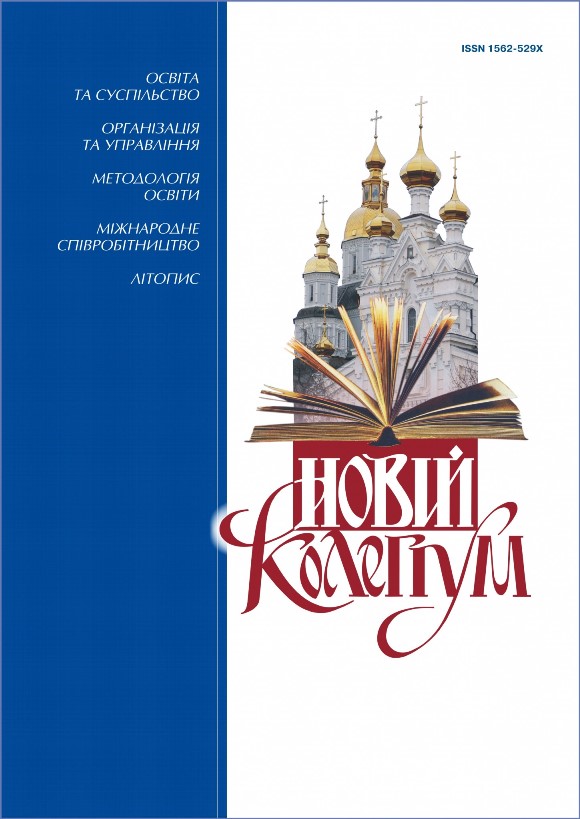The value of H.S. Skovoroda’s philosophical fables in the practice of fairy tale therapy
DOI:
https://doi.org/10.30837/nc.2022.4.44Keywords:
H. Skovoroda, fable, fairy tale, fairy tale therapy, philosophy, adultAbstract
The article clarifies that H. Skovoroda’s fables are broad on the issue, they raise the following issues: the boundaries of white and black, light and dark, good and evil, “related” work as a basic principle of work ethic, religiosity, the choice between good and evil, life and death, and so on. According to H. Skovoroda, the fable should help in the search for and discovery of eternal truth, his fables were aimed at exposing social ills, raised the spirit of civic dignity, the cult of reason, punished the world of abuse, deception, careerism, noble arbitrariness, veneration, profit, boasting, stupidity. H. Skovoroda’s fables are philosophical miniatures, reflections on related work, happiness and gratitude, which should fill every moment of a wise person’s life. But above all, these are good and funny stories about animals who are cunning, lazy, afraid and tear their noses like real people. The heroes of fairy tales show how important it is to see not only the external but also the internal essence of things, to take up the cause to which you have the ability, not to deceive others and value time and so on.
As H. Skovoroda’s philosophical fables raise many life issues and problems that occur in the life of an adult, they are useful interesting and useful material in the practice of fairy tale therapy for adults.On the example of some fables “The Bee and the Hornet”, “The Dog and the Wolf” from the series “Fables of Kharkov” it is proved that it is appropriate to use such forms, methods and technologies of working with H. Skovoroda’s fables: discussion and analysis of fables, its leading ideas, retelling the work on behalf of its various characters, watching videos, drawing illustrations, as well as creating your own fables with a similar plot.
References
Кравченко О.П. Вчення про людину у філософії Георгія Кониського і Григорія Сковороди : автореф. дис. ... канд. філософ. наук : 09.00.05 ; Ін-т філос. ім. Г.С.Сковороди НАН України. Київ, 2006. 20 с.
Особливості символіки Г.С.Сковороди // Література. Фольклор. Проблеми поетики: зб. наук. праць. Вип.3 / Редкол.: М.М.Конончук (відп. ред.) та ін. Київ : Твім інтер,1997. С.79–82.
Сковорода Г. Байки харківські. Видавництво «Відкрита книга», 2011. 11 с.
Сковорода Г. Краще Сковорода – дітям. Видавництво «Час майстрів», 2021. 108 с.
Туляков О.О. Античні ідеї освіти та виховання у творчій спадщині Г.С.Сковороди : автореф. дис. ... канд. пед. наук: 13.00.01 ; Харк. держ. пед. ун-т ім. Г.С.Сковороди. Суми, 1999. 16 с.
Українська ментальність у світлі філософії Григорія Сковороди та поезії Тараса Шевченка // Література. Фольклор. Проблеми поетики: зб. наук. праць. Вип.4 / Редкол.: Н.А.Лисюк, Т.В.Полковенко. Київ, 1996. С.32–35.
Український фольклор як фактор національного самовиразу Григорія Сковороди. [Електронний ресурс]. Режим доступу: https://studwood.net/796764/kulturologiya/osnovniy_zmist_disertatsiyi
Шевчук Т.С. Антична спадщина в художній рецепції Григорія Сковороди : автореф. дис. ... д-ра філол. наук : 10.01.05 ; НАН України, Ін-т л-ри ім. Т.Г. Шевченка. Київ, 2010. 40 с.

